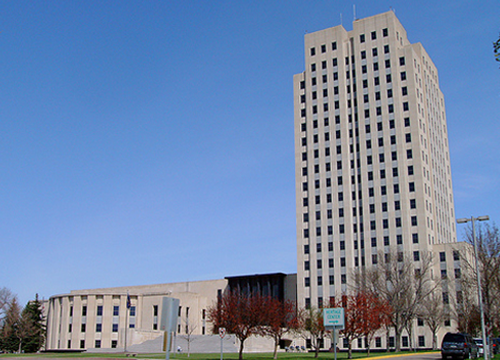Rep. Rick Becker: Why I Will Be Voting Yes On SB2279 (It Has Nothing To Do With Homosexuality)

I don’t like current law, nor do I agree with it philosophically.
Currently I do not have the right to choose to whom I will offer my services (my labor) or my property. The law states that I may not refuse on the basis of race, color, religion, sex, national origin, age, the presence of any mental or physical disability, or status with regard to marriage or public assistance. I should be able to both offer and refuse my labor and property to whomever I desire, for whatever reason I see fit.
It’s irrelevant whether the reason for refusal is unjust or immoral. As long as I do not infringe on the rights and property of others, it should not be the purview of the government to force me to act morally.
In other words, if I want to think and act like an ignorant jackass, it shouldn’t be the government’s job to prevent me from doing so. If I want to refuse service because I don’t like people who wear striped shirts, have blonde hair, are olive skinned, pray to a certain god, come from Latvia or Estonia, are in their twenties, or are divorced; that should be my prerogative. If I choose to withhold service to any group of people based on things such as skin color, I open up opportunity for competition.
[mks_pullquote align=”right” width=”300″ size=”24″ bg_color=”#000000″ txt_color=”#ffffff”]I don’t want to sanction the exclusion of the solitary remaining group to be treated differently by law. That is the greater injustice.[/mks_pullquote]
Both the people who I refuse to serve, as well as the customers who are opposed to my viewpoint are likely going to switch to my competitor who welcomes people of all skin colors. The market would take care of it, and I would still be permitted to offer my services to whomever I please, whether it is a wise business decision or not, whether it’s considered moral or not. Because on this, I believe existing law is unjust.
The argument has been made that expanding an unjust law (adding sexual orientation to the other protected groups) is a further injustice. I can’t argue against that point, however, I can argue the relative weight of the given injustice.
Let’s use a hypothetical to illustrate.
Say that the law only addressed discriminating against religion. It might say that I cannot refuse service to someone for being Jewish, Hindu, Lutheran, Muslim, etc. It might list out all the religions, but conspicuously leave out Catholics. What is the relative injustice to expand the law to include all religions? Although expanding the unjust law to include Catholics is technically unjust, it is a relatively small injustice, and actually seems to have a certain sense of fairness to it. The reason it might seem fair is the principle of equal treatment under the law.
Although the greatest justice would be had by eliminating the entire provision forcing me to offer my labor to someone I prefer not to, the relative injustice of expanding the law is very small compared to the much greater injustice of treating Catholics differently (by law) than all other religions.
Getting back to the bill at hand; there are about nine categories of people against which I am not permitted to discriminate, and one category that wants to be added. You could write each of the ten categories on cards, turn them face down, and shuffle them. It wouldn’t matter. Whichever card was the sole card excluded from being a protected class, I would reluctantly vote yes on this bill.
One of the most fundamental principles of a free nation is equality under the law. Not equality in economic status, talent, health, material goods, or jobs. Simply that we are all treated equally by law.
I agree with many of the concerns people have brought up regarding free enterprise and the concerns of the infringement of their rights. But I also see that we already are forced to address those concerns with the other nine groups.
You want to kick out the nine groups instead? Ok. But until that happens, I don’t want to sanction the exclusion of the solitary remaining group to be treated differently by law. That is the greater injustice.




